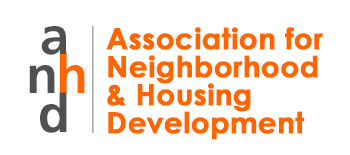10 Years After the Housing Crisis: Have We Learned Nothing?
ANHD is extremely disappointed in the U.S. Senate for rolling back the Dodd-Frank Wall Street Reform and Consumer Protection Act, commonly referred to as “Dodd Frank.” The Senate passed S.2155, which removes key financial safeguards and transparency regulations designed to prevent the kind of financial collapse and damage the U.S. experienced just a decade ago.
This bill is filled with givebacks to the financial industry, while doing nothing to safeguard consumers and tenants from abuses, such as fraudulent accounts and security breaches. This bill also comes at a time when the Consumer Financial Protection Bureau (CFPB) is rolling back its own fair lending examinations and shirking its duty to protect consumers, as per its mandate under the Dodd Frank law.
S.2155 hides key fair lending data for 85% of depository lenders, while exempting some of these same banks from the mortgage rules that ensure consumers have home loans they can actually afford. The Home Mortgage Disclosure Act (HMDA) is one of the most important tools we have to identify lending disparities and outright discrimination. It includes data on the income, race and gender of the borrower, the amount of the loan, and if the loan is high-cost. However, it does not currently capture some of the elements common to the types of mortgages that led to the financial collapse. Dodd Frank addressed this and expanded the data home mortgage lenders are required to report to HMDA, including additional information on race, ethnicity, and the cost and terms of loans to better understand where consumers are being unjustly charged, or denied loans to purchase, refinance, or improve their homes. S. 2155 would exempt roughly 85% of bank lenders that make fewer than 500 loans from reporting this expanded data. We’re already losing data from banks that make fewer than 25 loans as well as the long-standing exemption for multifamily lenders that don’t make any 1-4 family loans.
As the recent Reveal article demonstrates, redlining persists in banks large and small, and all banks should be required to report the expanded data and be held accountable when their lending disparately impacts people of color. A recent ANHD report on 2016 HMDA data also shows how few borrowers of color in New York City are receiving home loans from banks, a number of which will be exempt from expanded HMDA reporting under this bill. While not in New York City, Evans Bank in upstate New York reached a settlement in 2015 for alleged redlining, will be exempt under this bill. Meanwhile, banks under $10 billion in assets are now exempt from the qualified mortgage rule for loans they hold in portfolio.
This bill also reduces scrutiny for large banks. It raises the threshold for enhanced regulatory scrutiny from $50 billion to $250 billion, thus exempting banks within that range from stronger capital and liquidity rules, enhanced risk management standards, living-will requirements, some stress testing requirements, and more. Some banks have long been actively staying below the $50 billion threshold in order to avoid this additional scrutiny, while many others already over $50 billion stand to benefit from the increased threshold. This threshold change would likely empower more banks to merge and expand. In this deregulatory climate, banks are less likely to have strong Community Reinvestment Act (CRA) requirements connected to these mergers, thus leaving consumers and community organizations with fewer banks and fewer resources.
The bill now goes to the House of Representatives – we must remain vigilant and do all we can to ensure Congress protects consumers over Wall Street.
Jaime Weisberg, ANHD’s Senior Campaign Analyst
 ANHD 2016 Building the Community Development Movement
ANHD 2016 Building the Community Development Movement
